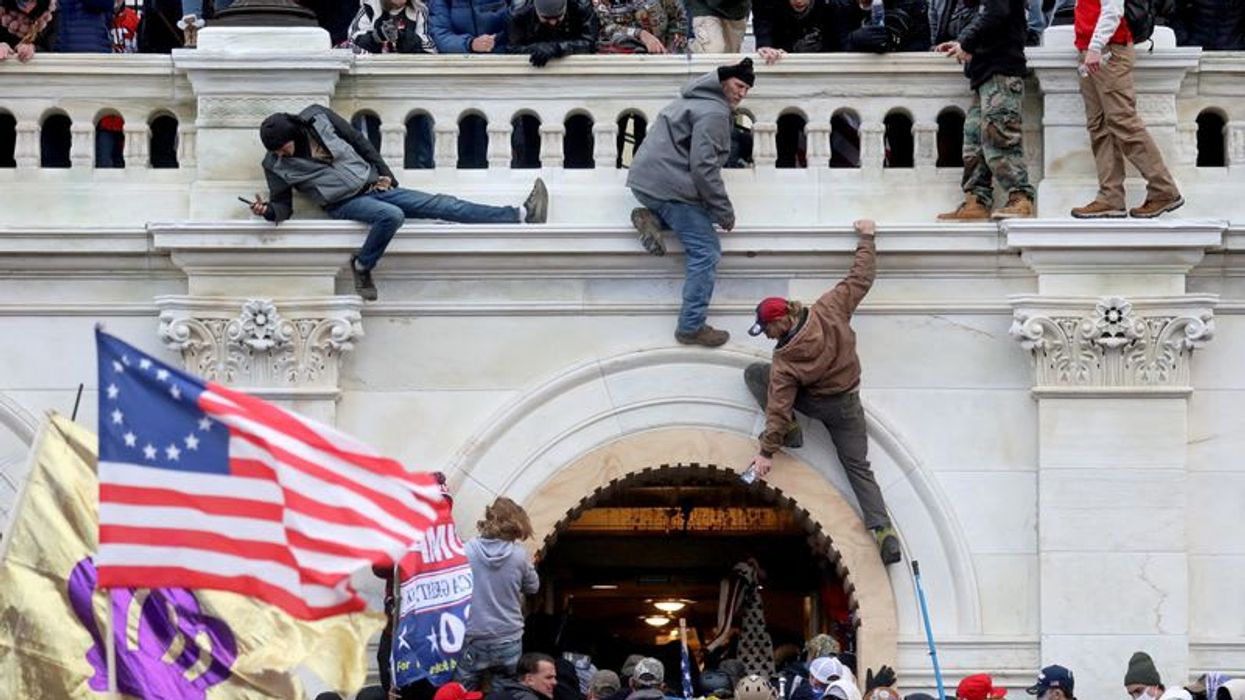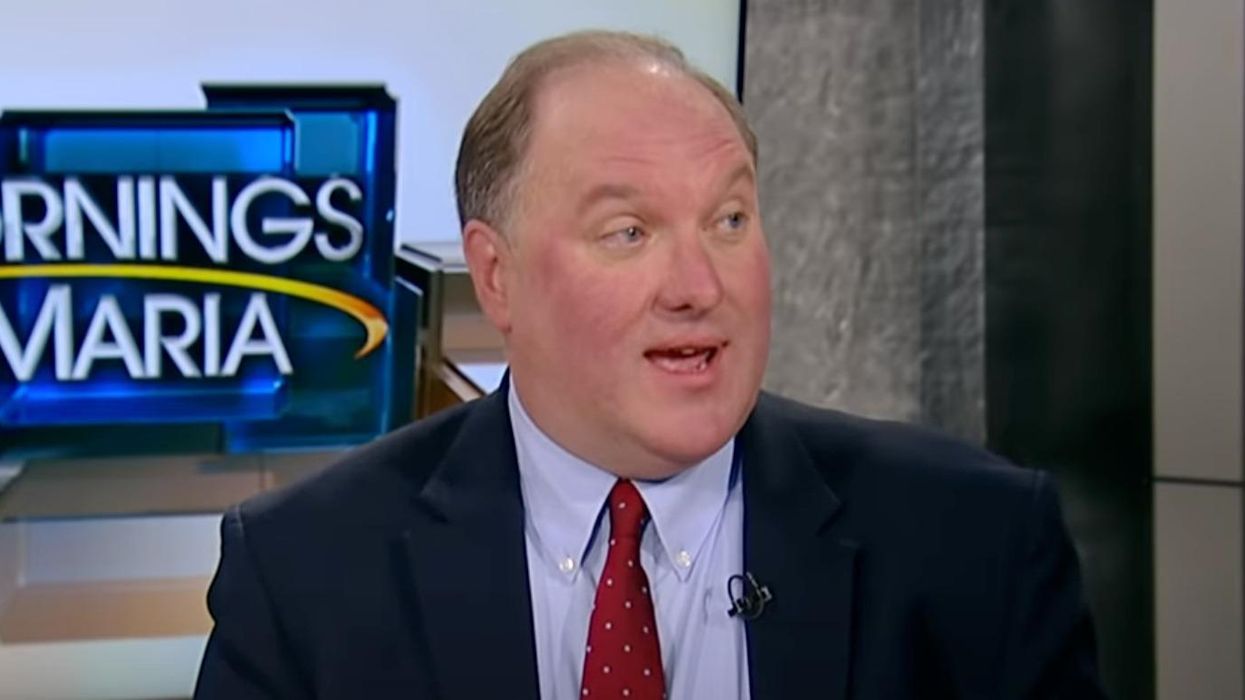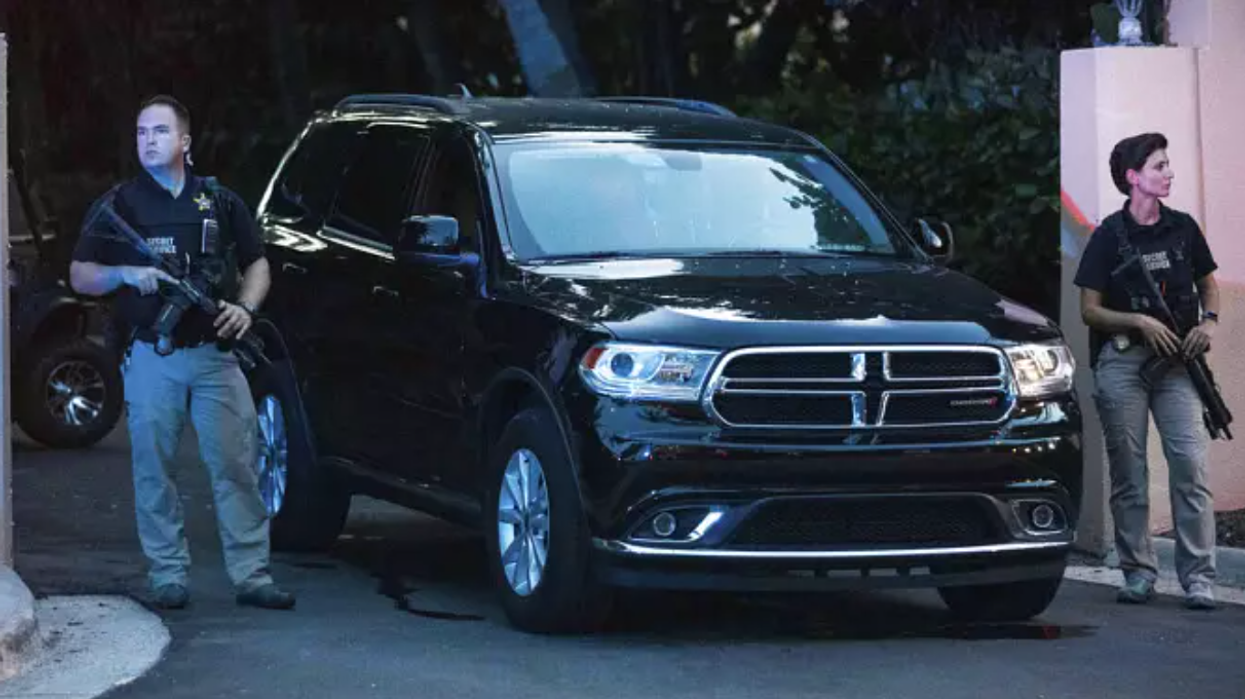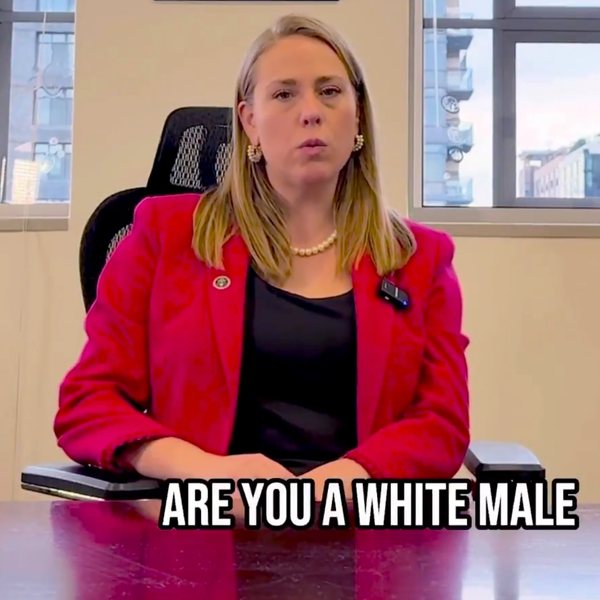John Solomon, former President Donald Trump’s official representative to the National Archives and Records Administration, released a letter that reveals in plain detail that Trump and his legal team did not cooperate with the National Archives, and that the August 8 Mar-a-Lago search occurred only after they repeatedly sought to delay the FBI’s involvement. Despite these facts, Solomon has made numerous appearances in the right-wing media, including on Fox News, to spread misinformation and spin about the letter.
Dated May 10, the letter from acting National Archivist Debra Wall to Trump lawyer Evan Corcoran details the back-and-forth between Trump’s lawyers and the National Archives in retrieving over 700 pages of classified material from Mar-a-Lago. It clearly lays out how Trump did not fully cooperate with the National Archives and the Department of Justice, outlining the five-month process to retrieve the documents.
Solomon’s website Just the News was the first to publish the damning document late on August 22. The next morning, he appeared on Steve Bannon’s War Room: Pandemic to put a confusing pro-Trump spin on the story.
In Solomon’s version, the FBI mysteriously heard that the National Archives retrieved documents from Mar-a-Lago and wanted to look through them. The bureau asked President Joe Biden, who told the DOJ and the FBI to go right ahead and look through the documents, completely ignoring that Trump maintains executive privilege over them.
This is completely false. Here’s a breakdown:
CLAIM: “The White House counsel's office authorized the National Archives to send information they had gotten in the boxes of Trump – voluntarily returned to the archives – and send it to the FBI. That launches a criminal investigation.”
REALITY: Solomon conveniently leaves out that the Presidential Records Act not only allows, but requires this course of action. As Wall details in the letter, the National Archives’ initial review of the documents returned in January found “items marked as classified national security information, up to the level of Top Secret and including Sensitive Compartmented Information and Special Access Program materials” – a label given to the most sensitive secrets in government. This prompted the agency to inform the DOJ. The Presidential Records Act empowers the National Archives, the president, and the DOJ to oversee the handling of presidential documents, including the power of “the Archivist and the Attorney General [to] jointly investigate the unlawful removal or destruction of government and presidential records.”
CLAIM: Next, Solomon says that “President Trump would have had the right … to go to court and say, I have executive privilege, I might have declassified these documents,” but “the current president waives the executive privilege of the past president.” He repeated this point again later on in the interview.
REALITY: His argument that Biden and the DOJ should have allowed Trump to take his executive privilege claim to the courts is debunked by the letter itself. Wall consulted the Office of Legal Counsel, which advised her that “there is no precedent for an assertion of executive privilege by a former President against an incumbent President to prevent the latter from obtaining from NARA Presidential records belonging to the Federal Government where ‘such records contain information that is needed for the conduct of current business of the incumbent President’s office and that is not otherwise available.’”
The precedent that Solomon and other Trump allies refer to when they argue this point applies only to congressional or judicial oversights, not executive branch examination and investigation. To be clear, a former president cannot exert executive privilege claims over a current president, the head of the executive branch itself, when the information pertains to the current business of the administration.
Then, referring to the same case as Solomon, Wall laid out what it actually means for Trump:
“To the contrary, the Supreme Court’s decision in Nixon v. Administrator of General Services, 433 U.S. 425 (1977), strongly suggests that a former President may not successfully assert executive privilege “against the very Executive Branch in whose name the privilege is invoked.” … The Court specifically noted that an “incumbent President should not be dependent on happenstance or the whim of a prior President when he seeks access to records of past decisions that define or channel current governmental obligations.”
The Office of Legal Counsel advised that Trump had no privilege over these documents. There was no need to start a court fight to rehash the same issue; as Wall’s letter noted, “the question in this case is not a close one.”
CLAIM: Solomon claims that on May 8, “the Biden White House says it's over, we're passing privilege. We're giving the documents to the FBI.”
REALITY: This is false. Biden delegated the decision to Wall; he did not make it himself. From the letter:
The Counsel to the President has informed me that, in light of the particular circumstances presented here, President Biden defers to my determination, in consultation with the Assistant Attorney General for the Office of Legal Counsel, regarding whether or not I should uphold the former President’s purported “protective assertion of executive privilege.”
As Politico’s Kyle Cheney explains, “there was no way a former president's claim could override an incumbent administration's need for the review. … Trump allies touted portions of this letter that were revealed by Solomon earlier in the evening, saying it showed Biden had been involved in the process. That's a requirement of any NARA matter involving privilege.”
CLAIM: Solomon argues that “there's an escalation driven by the Biden White House against its likely rival in 2024. … I think most Americans are going to be troubled to find out the current president [was] siccing the FBI on the former president, and I think that’s the way these documents read when you look at it. ”
REALITY: The letter makes clear that the “escalation” came only after numerous attempts by the Trump legal team to delay an FBI investigation. After being granted an initial delay until April 29, the Trump team requested an additional delay based on executive privilege claims, which the National Archives and the Office of Legal Counsel found to be legally unfounded. As the letter painstakingly explains, “The Executive Branch here is seeking access to records belonging to, and in the custody of, the Federal Government itself, not only in order to investigate whether those records were handled in an unlawful manner but also, as the National Security Division explained, to ‘conduct an assessment of the potential damage resulting from the apparent manner in which these materials were stored and transported and take any necessary remedial steps.’”
CLAIM: Solomon says that “in mid-April, there's a discussion – the FBI hears from the National Archives that they got the boxes. They want to see what's in the boxes.”
REALITY: Solomon’s word choice is misleading. Rather than implying that a nosy FBI “want[s] to see what’s in the boxes,” it would be more accurate to say that the bureau needed to investigate the documents, as is procedure per the Presidential Records Act. Nonetheless, this is not what the letter says. It says that the National Archives informed the DOJ, “which prompted the Department to ask the President to request that NARA provide the FBI with access to the boxes at issue so that the FBI and others in the Intelligence Community could examine them.” The FBI heard “from the National Archives that they got the boxes,” because the National Archives and DOJ needed the bureau to investigate whether the boxes contained classified documents.
Under federal law, “The Archivist is not authorized to independently investigate removal or recover records.” Engaging the FBI was a necessary step.
CLAIM: Solomon claims that Trump’s team asked for time to sort out privileged materials and “within a few days of that, those conversations going on, the National Archives came back and said ‘We don’t care about your privilege claims.’”
REALITY: He is putting a false spin on the timeline here. Trump’s lawyers were advised on April 12 that the National Archives would allow the FBI to examine the returned records. They sought and were granted a delay until April 29.
The rejection he’s referring to is the second request for a delay on April 29, two and a half weeks after Trump’s lawyers were notified that the FBI needed to examine the documents. At the time of writing the May 10 letter, Wall noted, “It has now been four weeks since we first informed you of our intent to provide the FBI access to the boxes so that it and others in the Intelligence Community can conduct their reviews.”
CLAIM: Solomon closes by arguing, “This is a chilling potential fact for not only former presidents, but any future president – if any future president knows that the guy who beats him at the polls or succeeds him at the polls can then turn around and release all the documents that a prior president might have considered privileged because he got important advice to do his job, who's going to put anything on paper? Who's going to want to get that advice knowing that could happen?”
REALITY: Solomon ignores that the documents the FBI was sent to recover still legally belong to the federal government, not Trump. Rather than trying to “turn around and release all the documents that a prior president might have considered privileged,” Wall’s letter said that the classified documents in question would need to be reviewed by national security officials to assess “the potential damage resulting from the apparent manner in which these materials were stored and transported” by the former president.
Responding to the Trump team’s objections, she explained that “there is no reason to believe such reviews could ‘adversely affect the ability of future Presidents to obtain the candid advice necessary for effective decisionmaking.’ … To the contrary: Ensuring that classified information is appropriately protected, and taking any necessary remedial action if it was not, are steps essential to preserving the ability of future Presidents to “receive the full and frank submissions of facts and opinions upon which effective discharge of [their] duties depends.”
Further, what Solomon complains about has been possible since 1978; any president since the Presidential Records Act was put in place could release such documents. Trump does not hold executive privilege over the executive branch itself.
Nonetheless, Solomon was not the only pro-Trump figure on War Room spinning the National Archives letter.
Former Trump adviser Boris Ephsteyn also appeared on Bannon’s August 23 show and claimed that Politico’s coverage of the letter somehow exonerates Trump: “The only thing that matters in the Politico article is that it proves once and for all, fully proves that A) there was full cooperation and compliance, as we've been saying consistently, and B) that the Biden administration absolutely and fully participated in this plan to raid and attack Mar-A-Lago. There's no two ways about it.”
The Trump team was not in “full cooperation and compliance.” They sought to delay the investigation at least twice and submitted challenges with no legal basis. The May 10 letter shows that the Biden administration, as Cheney again points out, was remarkably detached from the investigation: “The language about consultation with the White House shows Biden was *more hands off* with the Mar-a-Lago docs than he was with the Jan. 6 records held by NARA. In both cases, archivist consulted with OLC, but in latter Biden delegated privilege decisions to NARA.”
The previous day, president of the Article III Project and regular War Room guest Mike Davis complained that before ordering the Mar-a-Lago search on August 8, Attorney General Merrick Garland did not “take the time to go to the Office of Legal Counsel within his own Justice Department,” whose opinions “are binding on the executive branch.” Davis asserted this meant that Garland knew the Mar-a-Lago search was “unlawful” and “unnecessary.”
Of course, we now know that the Office of Legal Counsel was consulted by the National Archives before the May 10 letter, and its “binding” legal opinion rejected Trump’s defenses. But these facts haven’t stopped right-wing media from spreading other pro-Trump spin and misinformation around the Mar-a-Lago search.
In an August 23 article, Fox News adopted the same false framework with the headline “Biden signed off on FBI review of Trump records, National Archives letter reveals.”
And Solomon has introduced a dubious new line of attack blaming former President Barack Obama.
JOHN SOLOMON (JUST THE NEWS): Joe Biden’s former boss, Barack Obama, actually managed to change the rules. After 9/11, George Bush had put a rule into place that a prior president got to protect his own privilege. If he and the president couldn’t – the sitting president – couldn’t agree on the release of records, that the prior president’s claim to executive privilege was predominant. Barack Obama came in in 2009 and he got rid of that and said, I, the incumbent president, I get the only say on this. … Barack Obama actually set in motion the raid that ultimately ended up in a raid at Mar-a-Lago on Donald Trump’s property.
Reprinted with permission from Media Matters.












